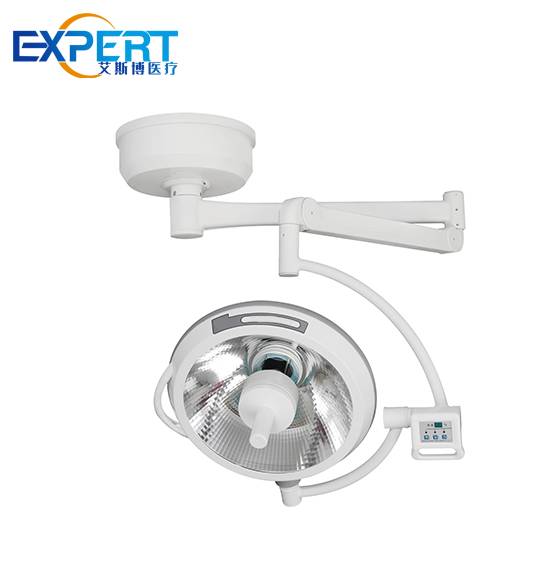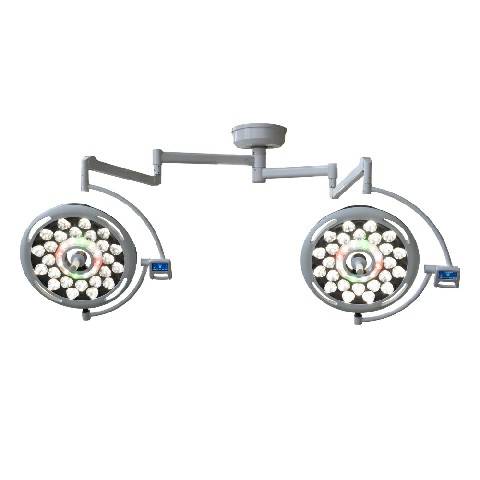Adresse
304, rue Cardinal Nord
Centre Dorchester, MA 02124
Heures de travail
Du lundi au vendredi : 7h - 19h
Week-end : 10h - 17h
The importance of a quality surgical exam light cannot be overstated in medical settings. These lights are crucial for providing the clarity and visibility needed during surgical procedures and examinations. In this comprehensive guide, we will delve into the key aspects of surgical exam lights, including their benefits, features to consider, and maintenance tips. We will also compare different types of surgical exam lights and answer frequently asked questions to help you make an informed decision.

A quality surgical exam light enhances visibility, ensuring that medical professionals can see clearly during procedures. This is essential for accuracy and precision, reducing the risk of errors and complications.
High-quality surgical exam lights are designed to provide uniform, bright light without flickering, which helps to reduce eye strain for medical professionals. This is particularly important during long procedures.
Better visibility and reduced eye strain contribute to improved patient safety. A well-illuminated surgical field allows for better diagnosis and treatment, ultimately leading to better patient outcomes.
Modern surgical exam lights, especially those using LED technology, are highly energy-efficient. This reduces operational costs and contributes to a more sustainable medical practice.









The brightness of a surgical exam light is measured in lux. Look for lights that provide adjustable brightness levels to suit different procedures and preferences. Higher intensity is often required for more detailed work.
Color temperature, measured in Kelvin (K), affects how colors appear under the light. Surgical exam lights typically range from 3500K to 6700K. Choose a light with adjustable color temperature to ensure optimal visibility and color accuracy.
A good surgical exam light minimizes shadows, providing consistent illumination across the surgical field. Multi-head designs and adjustable arms can help achieve this.
Heat generation is a concern with traditional lights. Modern LED surgical exam lights generate less heat, making them more comfortable for both patients and medical staff.
An ergonomic design allows for easy positioning and adjustment of the light. Flexible arms and swiveling heads enable precise control of the light’s direction and angle.
To help you choose the best surgical exam light for your needs, we’ve compared some popular models based on key features.
| Modèle | Brightness (lux) | Température de couleur (K) | Réduction des ombres | Gestion de la chaleur |
|---|---|---|---|---|
| Expert LED720/520 | 160,000/180,000 | 44300±500 | Excellent | LED, Low Heat |
| Welch Allyn Green Series | 90,000 | 5000 | Bien | LED, Low Heat |
| Burton AIM-100 | 100,000 | 4300 | Very Good | Halogen, Moderate |
| Skytron Aurora Four | 160,000 | 4000-5000 | Excellent | LED, Low Heat |
| Stryker Visum LED | 140,000 | 4500-5000 | Very Good | LED, Low Heat |
The Dr. Mach LED 130 offers excellent brightness and adjustable color temperature, making it suitable for various surgical applications. Its advanced shadow reduction and low heat generation make it a top choice for many medical professionals.
This model is known for its energy efficiency and moderate price range. While it provides good brightness and shadow reduction, its fixed color temperature may limit versatility.
The Burton AIM-100 is a budget-friendly option with good brightness and shadow reduction. However, it uses halogen bulbs, which generate more heat compared to LED lights.
Skytron Aurora Four provides superior brightness and color temperature adjustability. Its advanced LED technology ensures low heat generation and excellent shadow reduction, making it ideal for complex procedures.
The Stryker Visum LED offers high brightness and adjustable color temperature, with very good shadow reduction. Its ergonomic design and low heat output make it a reliable choice for various medical settings.

Regular cleaning of the surgical exam light is essential to maintain optimal performance. Use a soft, damp cloth to wipe down the light and remove any dust or debris.
Inspect the light for any signs of wear and tear, such as cracks or loose components. Address any issues promptly to prevent further damage and ensure the light remains functional.
If your surgical exam light uses halogen bulbs, replace them as needed to maintain brightness and color accuracy. LED lights generally have a longer lifespan but should still be checked periodically.
To ensure smooth movement and positioning, lubricate the moving parts of the light regularly. This helps maintain the light’s ergonomic design and ease of use.
Schedule regular maintenance checks with a professional technician to ensure all components are functioning correctly. This helps extend the lifespan of the light and ensures it remains reliable during procedures.
Enhancing visibility with a quality surgical exam light is crucial for ensuring accuracy, precision, and patient safety during medical procedures. By understanding the key features to look for and comparing different models, you can make an informed decision that meets your specific needs. Regular maintenance and proper care of your surgical exam light will ensure it remains reliable and efficient for years to come. Whether you’re upgrading your current lighting or investing in new equipment, this guide provides the insights needed to choose the best surgical exam light for your practice.
The ideal brightness for a surgical exam light typically ranges from 90,000 to 160,000 lux, depending on the specific requirements of the procedure. Adjustable brightness levels allow for greater flexibility.
Color temperature affects how colors appear under the light. A higher color temperature (closer to daylight) provides better color accuracy, which is essential for distinguishing tissues and identifying issues during procedures.
LED surgical exam lights offer several benefits, including lower heat generation, energy efficiency, longer lifespan, and better color rendering. These advantages make them a preferred choice over traditional halogen lights.
Surgical exam lights should be serviced regularly, at least once a year, to ensure all components are functioning correctly. Regular maintenance checks help prevent issues and extend the lifespan of the light.
Yes, surgical exam lights can be used for various medical procedures that require high-quality illumination. Their adjustable brightness and color temperature make them suitable for examinations, minor surgeries, and other medical applications.
